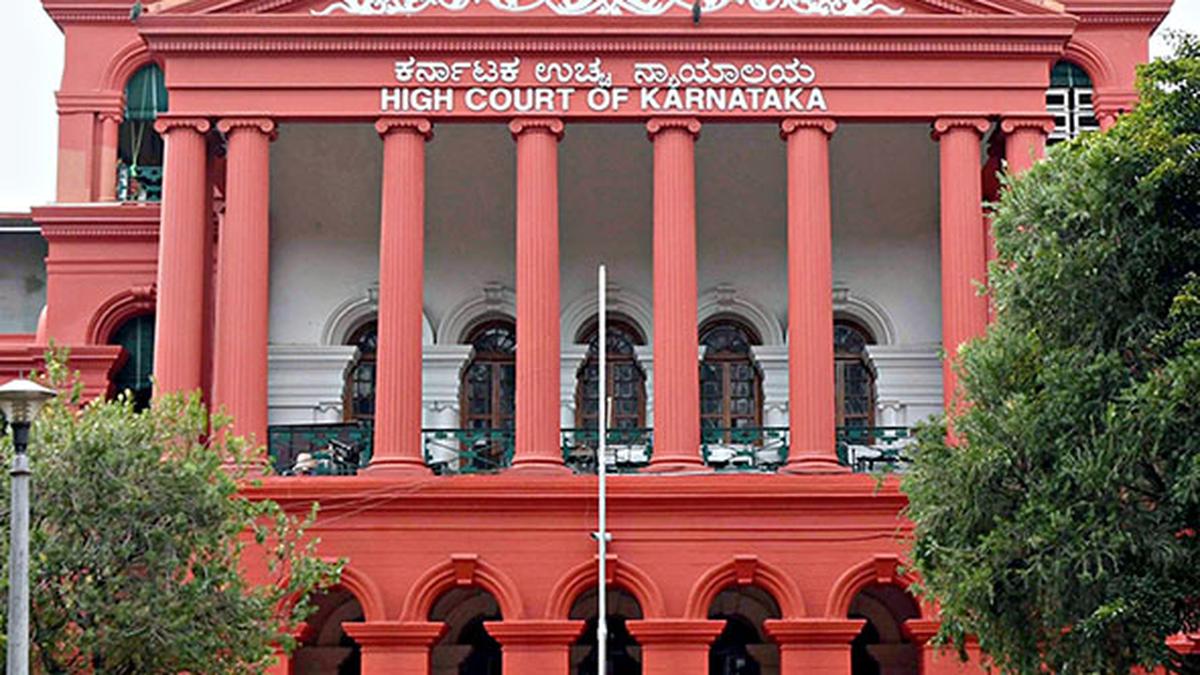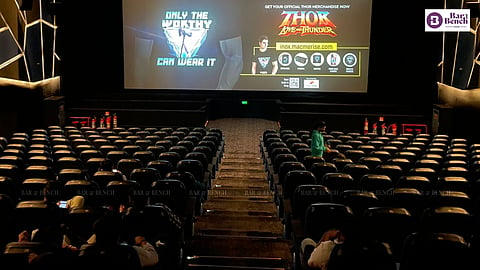The Karnataka High Court has temporarily stayed the state government’s decision to cap cinema ticket prices at ₹200, sparking widespread debate across the film industry and among moviegoers. The government had introduced the rule earlier this year, claiming it was aimed at making entertainment affordable to the public and preventing exorbitant pricing during blockbuster releases. However, multiplex associations and distributors challenged the order, arguing that such artificial limits would threaten business sustainability. With the stay order now in effect, theatre owners are allowed to resume dynamic pricing, pending a final judgment.
The petitioners argued that the government’s move interfered with free market operations and violated their fundamental right to carry on trade and business. According to theatre owners, running multiplexes involves high maintenance costs, including salaries, rent, air conditioning, safety protocols, and digital projection expenses. They stressed that a uniform cap failed to account for differences in infrastructure between single-screen theatres and modern multiplexes. Their legal counsel maintained that the decision was arbitrary and lacked proper consultation with stakeholders, forcing them into losses during peak seasons when audiences are willing to pay more.
On the other hand, the state government defended its order, claiming it was designed to protect consumers from exploitation. Officials argued that cinema, as a popular cultural medium, should remain accessible to middle-class and lower-income families. They noted that past experiences showed tickets being sold at rates as high as ₹500–₹600 during big releases, pricing out ordinary citizens. The government also maintained that affordable entertainment is part of its larger welfare responsibility. With the High Court stay, however, critics say the immediate impact will be a return to higher ticket rates in cities.
Industry Reaction and Audience Concerns
The film industry remains divided over the issue. While producers and exhibitors welcomed the stay, arguing it gives them greater flexibility in recovering production costs, several actors and directors expressed disappointment, saying cinema should not become an elite experience. Social media has been flooded with reactions, with many fans complaining that the ruling will make family outings unaffordable again. Analysts predict that ticket prices in Bengaluru’s multiplexes could now shoot back to ₹400 or more on weekends, reigniting public anger even as the legal battle continues.
Consumer rights activists have also voiced concern, insisting that the government must step in to prevent profiteering. They argue that while multiplex owners deserve fair profits, unchecked pricing could alienate a large section of the audience, ultimately hurting the industry itself. Some suggest that a middle-ground solution—such as allowing flexible pricing with a ceiling for weekends and holidays—could be considered. The matter, however, rests with the judiciary, and the High Court is expected to hear detailed arguments before delivering its final verdict in the coming weeks.

What Lies Ahead in the Legal Battle
The High Court’s interim stay has ensured that Karnataka’s cinema pricing debate will continue for months. If the government fails to defend its order effectively, the industry may secure permanent relief, paving the way for unregulated ticket pricing. However, if the state succeeds, the ₹200 cap could return, forcing multiplexes to rethink their business models. For now, audiences remain caught between affordability and the survival of an expensive entertainment industry. The final ruling will likely set a precedent for other states where similar pricing caps have been under consideration.
The Karnataka High Court has granted an interim stay on the state government’s rule capping cinema ticket prices at ₹200, providing temporary relief to multiplexes and theatre owners. The state government had announced the price ceiling earlier this year as a measure to ensure affordable access to entertainment for the general public. However, the move faced stiff resistance from theatre owners and film distributors, who argued that the cap would result in major financial losses, especially with rising operational costs and increased investments in film production.
Several cinema associations and multiplex chains approached the High Court, contending that the government’s order interfered with free market principles and the contractual freedom of private businesses. They claimed the regulation was arbitrary, lacked proper justification, and did not consider the varying costs of running theatres in urban versus rural areas. The petitioners also pointed out that high-budget films require higher ticket revenues to recover investments, and such caps would discourage producers from investing in the Kannada film industry as well as limit the audience experience in premium formats like IMAX and 3D.
The state government, in its defense, maintained that the cap was introduced to balance affordability for common citizens while promoting cinema as a cultural and social medium. Officials argued that unchecked ticket pricing during blockbuster releases burdened the public, especially middle- and lower-income families. The government emphasized that the cap was in the interest of ensuring cinema remained inclusive, but the High Court’s stay order has now paused its enforcement, leading to fresh debates on balancing consumer rights with industry sustainability.

Industry Impact and Next Steps
The interim stay has been welcomed by theatre owners and multiplex operators, who see it as a victory for free enterprise. Industry representatives argue that while affordability is important, ticket pricing should be driven by market demand and infrastructure costs rather than rigid regulation. On the other hand, consumer rights groups and social activists fear that without the cap, ticket prices during major releases could soar, making cinema-going inaccessible for large sections of society.
The High Court has directed the government and petitioners to submit detailed arguments before making a final decision. The outcome of this case is likely to set an important precedent for how far the state can intervene in private industries under the pretext of public interest. For now, theatre owners can price tickets beyond ₹200, but the long-term picture will depend on the court’s final ruling.
Analysts warn that prolonged uncertainty around ticket pricing could impact both producers and audiences. For film producers, the ability to recover production costs depends heavily on flexible ticket pricing, especially for high-budget films with large casts and elaborate sets. If the cap were to be reinstated, it might discourage investment in ambitious projects or delay releases. On the other hand, audiences are caught in a limbo, unsure whether affordable tickets will be available for upcoming blockbuster films. This tension highlights the need for a carefully balanced approach that addresses both economic viability and public accessibility.
In major cities like Bengaluru and Mysuru, multiplex owners have already started adjusting weekend and premium pricing in anticipation of the stay order. Tickets for IMAX, 3D, and Gold Class experiences have surged in price, reflecting the costs of maintaining advanced screening technologies and providing enhanced comfort. Industry insiders say that a rigid cap would have forced them to limit screenings, reduce staff, or compromise on maintenance standards, ultimately affecting the cinematic experience. The temporary stay allows theatre owners to continue operations without compromising quality while awaiting the court’s final decision.
Consumer groups have expressed disappointment but acknowledge that the legal process must take its course. Many advocates for affordable entertainment argue that a middle-ground solution could involve tiered pricing—where basic screenings remain accessible to the public while premium formats reflect market-driven costs. They suggest mechanisms like subsidies or discount programs for students and low-income families, ensuring that cinema remains inclusive without financially harming the industry. These recommendations have sparked discussions among policymakers, theatre owners, and civil society on potential compromise solutions.
Film industry stakeholders also point out that Karnataka’s cinema sector contributes significantly to employment, including jobs for projectionists, ushers, security staff, and marketing teams. Limiting ticket prices arbitrarily could reduce revenue streams, threatening these livelihoods. Distributors argue that flexible pricing ensures sustainability across the supply chain, from production houses to theatre staff. They claim that the government’s original order did not account for these downstream effects, creating an imbalance between affordability goals and economic realities. The High Court’s stay is therefore seen as preventing a potential economic disruption in the local entertainment ecosystem.

The legal battle is likely to attract attention beyond Karnataka, as other states have considered or implemented similar ticket pricing regulations. A final ruling could establish benchmarks for the balance between government regulation and free-market pricing in entertainment industries nationwide. Experts note that the case touches on broader constitutional principles, including the right to trade, freedom of business, and consumer protection. Until the court delivers its verdict, theatre owners and audiences remain in a state of uncertainty, weighing the competing interests of affordability, quality, and economic sustainability.
Cinema enthusiasts have reacted strongly on social media, sharing mixed opinions on the stay order. Some viewers expressed relief, especially those who enjoy premium screenings and are willing to pay higher prices for comfort and advanced technology. Others voiced disappointment, fearing that blockbuster films will now become unaffordable for students and middle-class families. The debate reflects the larger challenge of balancing accessibility with commercial viability in the entertainment sector. Analysts suggest that public opinion may influence policymakers to consider flexible pricing models or subsidized options once the final verdict is delivered.
Follow: Karnataka Government
Also read: Home | Channel 6 Network – Latest News, Breaking Updates: Politics, Business, Tech & More

